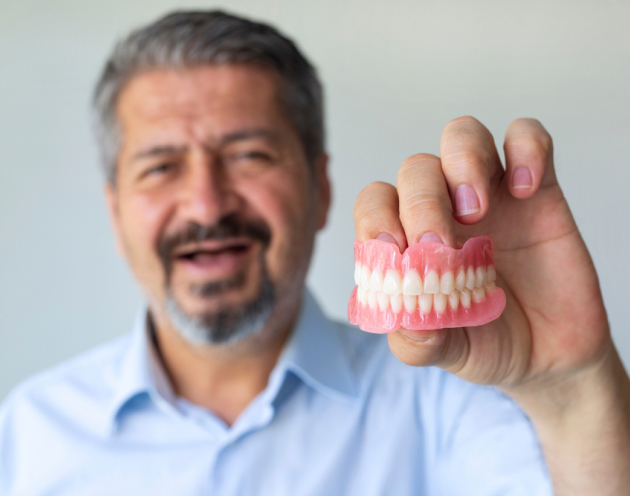
New to Dentures? Tips for a Smooth Adjustment
Adjusting to New Dentures: Helpful Tips
" While dentures improve the form and function of a person’s smile, they feel and act differently than natural teeth. "
Oral Care for Dentures
" Another crucial aspect of adjusting to new dentures is a consistent and effective dental hygiene routine."
In the first 30 days, here's what to expect
During the initial 30-day period, it is important for patients to be gentle with their mouths and allow themselves time to adjust to a new routine. New denture wearers should have realistic expectations, as oral discomfort is common initially but will improve over time as the dentures start to feel more natural and comfortable. Increased salivation and sore spots in the mouth are also normal during the first month of wearing new dentures.
While eating and speaking may feel unfamiliar at first, practicing and being patient are essential for the adjustment process. If fit and comfort issues persist after a month, individuals should contact us for an adjustment appointment. By the end of the first 30 days, people should be able to comfortably and confidently enjoy their daily activities.
" During the 30-day adjustment period, patients should be gentle on their mouths and take their time with the new routine."
Changing Eating Habits
Individuals who have recently received dentures may need to make adjustments to their eating habits. It is recommended to start with soft foods as chewing can be more difficult with new dentures. Learning how to chew without dislodging the dentures, biting the tongue, or irritating the gums is important.
When ready to progress to harder foods, it is advised to cut the food into small, bite-sized pieces that can be easily chewed with the back teeth. It is important to avoid chewing with the front teeth, as this can cause the dentures to become loose in the back. Sticky foods, hard items, and tough cuts of meat should also be avoided to prevent the dentures from coming loose or getting damaged.







